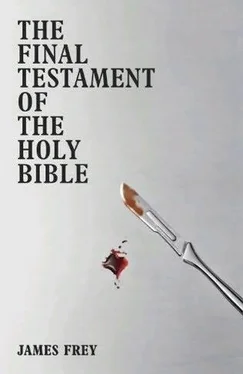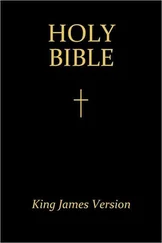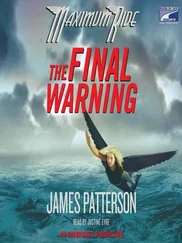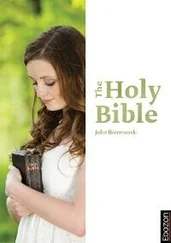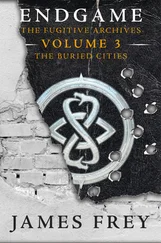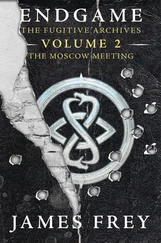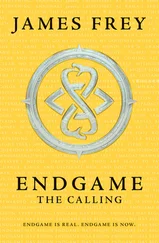The next morning, when I woke up, Ben was gone. The girl was gone too, and Mariaangeles didn’t come out of her room for the whole day. And when she did, she wouldn’t say where Ben had gone or who the girl was or what had happened. All I knew was that Ben was gone.
I think about my suffering. My sadness, loneliness, the fact that my family has been destroyed, that I’ve been beaten and tortured and forced to worship a God that is not mine, and live a life that is not mine. I think about the suffering of others in this world, this ugly, ugly world. I think about all of the violence and war, the poverty and hunger. I think about the addiction and abuse and oppression. I think about all of the sickness and disease and physical misery, and I think about all of the suffering of the soul, which is greater and more profound than any of the physical ailments that befoul us. I think about all of the pain that everyone feels every minute of every day. There is so little joy. So little freedom. So little security. So little that makes us feel as if this is all worth it. And what there is that makes us think it’s worth it is love. Love is the only way to alleviate suffering. Love is the only way to find freedom. Love is the only place in all of humanity where there is security. And even love doesn’t work for very long. Love always disappears or vanishes. Love is always killed or destroyed. Love always changes into something that isn’t really love. Moments of true, pure, unconditional love are the rarest and most valuable things on earth. If we have two or three of them over the course of our entire lives, we’re lucky. Most of us have none. Most of us live with the illusion of having love or seeking love or knowing love, but what we have or seek or know is desire and possession and control. What we know as love doesn’t really make us happy. If anything, it makes us suffer more. It makes us more unhappy and more violent and more oppressive and more miserable. It increases our suffering. But if we could learn. If we could learn what Ben Zion learned. If we could live as Ben Zion lived. If we could feel as Ben Zion felt. If we could love as Ben Zion loved.
I always believed we would see him again. I hoped it would happen before our mother died. After he first left again, after his fight with Jacob, I prayed for his return. I prayed for hours a day. When I was supposed to be praying for other things, when I was supposed to be praying for things that Jacob wanted me to pray for, and told me to pray for, I prayed for Ben Zion. While I was praying, I thought about what it had been like seeing him again. I thought about who he was and what he had become, which my parents, and everyone in our family, and our rabbis always believed he would become. I thought about what he could do, how he could perform miracles, how he could make people feel, and how he could change lives with a word or a touch. I thought about all of the languages he could speak without having studied them and all of the books he knew without having read them. I thought about how he could speak with God. I thought about all of the signs of divinity that were recognized when he was born: his Davidic blood, his birthday on the day the Temple of Solomon was destroyed, his circumcision at birth. I thought about the burden he must have felt for most of his life. Being raised and educated as someone who might be the Messiah. What that must have been like for a little boy. A three-year-old who should have been playing with trucks. A five-year-old who should have enjoyed playing at a playground. A seven-year-old who should have enjoyed school like a normal child. A nine-year-old who should have been allowed to have friends. I thought about what it must have felt like for him to know what he was, or what he was believed to be, what made his father and brother jealous and scared and made them hate him. I thought about what it must have been like for him when he was thrown out of our home. He was still a child, barely a teenager. I wondered what he did for all of those years we searched for him and could not find him. I wondered where he was, who he met, and what he felt. I wondered if he was waiting to become what he became. If he believed it. If it was a burden. If he woke up every day in terror, wondering if today was the day he became Moshiach. If he ever spoke to anyone about it. If he had any friends or anyone who loved him. If he cared. If he knew how it would end, and I suspect that he did. I don’t have answers, but I believe it must have been some kind of hell. To know that you were Moshiach, the Messiah, the Son of God, Christ reborn, the earthly incarnation of God on earth, even though his God was not the God propagandized on earth for thousands of years. It’s a miracle he survived knowing. It’s a miracle that he accepted it and waited for it, wherever he was, whatever he did, whatever he felt, however he suffered. It’s a miracle. My brother was a miracle.
And while I thought about all of this, I let myself doubt it. Any faith, any true faith, involves doubt. If you say your faith is unshakeable, you have no faith. If you say you have no doubt, then you have no belief. The struggle of faith, the worthiness of faith, the value of faith, is holding true to that faith in the face of doubt. If you are to believe in God, you must allow yourself to doubt God. If you are to believe in anything, you have to doubt it. I believed in my brother. In his power and his divinity. In his righteousness. In his mission, which was to show us the folly of our beliefs, to show us the danger of our religions, to show us the stupidity we exhibit by placing our hopes and dreams in the hands of politicians, and to show us the value of living our lives believing in love, and living with love, not the false, judgmental love we have been taught, but a love where every human on earth is given equal value, and granted equal rights, and provided equal care. I believe that he was who he was born to be, and that he was the man that had been prayed for for thousands of years. I believe that in his death, in his sacrifice, he gave us a chance to redeem ourselves. He died willingly in order to redeem us of the sins of religion, the sins of our Gods, the sins of placing our lives in the hands of politicians who have defrauded us. He redeemed our humanity by showing how and why the humanity we have been sold is wrong. That the Gods we worship don’t exist and don’t care. That the systems we have been forced to exist in are destroying us. In the same way that Christ supposedly sacrificed himself for our sins, sins that are a natural part of our humanity, as natural as breathing and eating, sins such as love and sex and choice, Ben Zion sacrificed himself for our belief in the Christ story, and for all the stories like it, stories that enslave us, and oppress us, and destroy us. If we realize Ben Zion was right, and if we learn from what he taught us, we have a chance to save ourselves. I don’t, however, believe we will take it. He was prophetic in that he knew the end was coming. He was Moshiach in how he showed us how to avoid it. He showed us we are all asleep. He screamed, and he kept screaming it until it led to his death. We have a chance if we remember that scream, if we listen to it. I don’t, however, believe we will take the chance. It will all end.
And while I believe what I believe, there is doubt, there is always doubt, and there has to be doubt. Was Ben Zion just a man? Was he a child poisoned by religion and convinced to believe in ancient prophecies that will never come true? Did he become what he became because he was told he would? Was he mentally ill? Did his epilepsy destroy his sanity? Was he a criminal who deserved what he received? Was he an egomaniac serving his own self-need? Was he delusional and sick and dangerous? I allow myself to ask the questions, because when I think about the man I knew, and the life he lived, and the words he spoke, and the example he gave, and the miracles he performed, and the love he shared, and the sacrifice he made, the answer, to all of the questions I ask myself, is no. Or the answer is no to all the questions but one. He was dangerous. He was absolutely dangerous. Dangerous because if we listen to him we will wake up. If we listen to him, we will stop buying the bad goods that are sold to us, and we will stop falling for the cons of preachers, popes, and presidents, and the disease of religion will be cured, and the lies of politicians will no longer be believed, and everything that has been built, all of the sick, diseased institutions that rule us and control us, and deceive us, will crumble, and they will fall. He was absolutely dangerous. And they killed him.
Читать дальше
